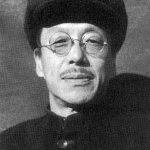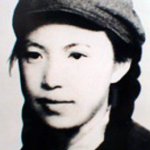 Lin Zhao (1932-1968) was a communist revolutionary turned dissident, executed during the Cultural Revolution for criticising Mao Zedong and the Chinese Communist Party (CCP). She was born Peng Lingzhao, the eldest child of an affluent family in Suzhou, Jiangsu province. Peng’s father was a magistrate who worked for the Nationalists while her mother, a successful banker, made secret donations to the Communists. A bright student and a voracious reader, Peng became interested in politics and at age 16 aligned herself with the CCP. Using the pen name Lin Zhao, she wrote articles attacking brutality and corruption in the Nationalist government. In late 1948 Lin defied her parents by running away from home and joining a CCP-run training camp, where she studied journalism, propaganda and Maoist ideology.
Lin Zhao (1932-1968) was a communist revolutionary turned dissident, executed during the Cultural Revolution for criticising Mao Zedong and the Chinese Communist Party (CCP). She was born Peng Lingzhao, the eldest child of an affluent family in Suzhou, Jiangsu province. Peng’s father was a magistrate who worked for the Nationalists while her mother, a successful banker, made secret donations to the Communists. A bright student and a voracious reader, Peng became interested in politics and at age 16 aligned herself with the CCP. Using the pen name Lin Zhao, she wrote articles attacking brutality and corruption in the Nationalist government. In late 1948 Lin defied her parents by running away from home and joining a CCP-run training camp, where she studied journalism, propaganda and Maoist ideology.
In 1950, Lin Zhao was deployed as a party cadre and sent into rural areas to implement Mao Zedong’s agrarian reforms. In this role she organised and oversaw land redistribution, the reorganisation of village life and ‘Speak Bitterness‘ hearings against former landlords. Despite her youth, Lin expressed no qualms about revolutionary violence, witnessing numerous executions and once ordering a landlord to be kept overnight in a tub of freezing water. In 1954 Lin enrolled at Beijing University, where she studied literature and poetry. University life moderated Lin’s political views and she began to question her commitment to Mao and the party. She secretly converted to Christianity and openly criticised CCP policies during the Hundred Flowers Campaign. For this, Lin was declared a ‘Rightist’, suspended from her studies and given menial work around the university, such as killing mosquitoes. In 1960 she was permitted to join her parents in Shanghai due to ill health.
“The cunning villains used our innocence, naivety and honesty; they incited and steered our virtue, purity and fervent temperaments. When we realized the actual absurdity of the situation and began to demand our democratic rights, we were subjected to unprecedented persecution and suppression. Our youth, passion, learning, idealism and joy were all sacrificed to the terrible rule of this wicked tyranny.”
Lin Zhao, writing in prison, 1966
In Shanghai, Lin joined an underground student group and continued to produce inflammatory articles, some of which detailed the famine unleashed by Mao’s Great Leap Forward. She also wrote several poems with liberal or anti-communist themes. Lin was arrested in October 1960 and detained for several years without trial. She was poorly treated in prison but continued to write anti-CCP prose and poetry, at times using a hairpin dipped in her own blood. In 1965 Lin was sentenced to 20 years’ imprisonment but the onset of the Cultural Revolution saw this converted to the death penalty for “insanely attacking, cursing and slandering” Mao Zedong and the party. She was executed in April 1968 with a single gunshot to the head. Lin’s mother was informed of her death two days later when CCP officials handed her a bill for the bullet used in Lin’s execution. Lin was pardoned and rehabilitated by Deng Xiaoping‘s government in 1981, though discussion of her life and writings continue to be suppressed in China.
Information and resources on this page are © Alpha History 2018.
Content on this page may not be copied, republished or redistributed without the express permission of Alpha History. For more information please refer to our Terms of Use.
This website uses pinyin romanisations of Chinese words and names. Please refer to this page for more information.

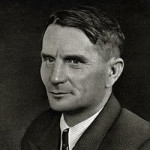
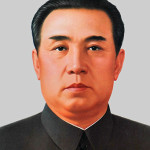
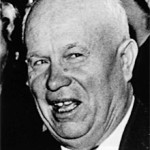
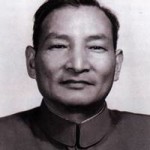
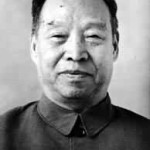
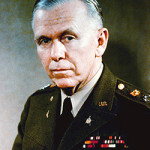 George Catlett Marshall (1880–1959) was a highly decorated American general, statesman, diplomat and military leader. Born into a middle-class family in Pennsylvania, Marshall was educated at a military college before joining the US Army as a second lieutenant in 1902. He served in the Philippines and
George Catlett Marshall (1880–1959) was a highly decorated American general, statesman, diplomat and military leader. Born into a middle-class family in Pennsylvania, Marshall was educated at a military college before joining the US Army as a second lieutenant in 1902. He served in the Philippines and 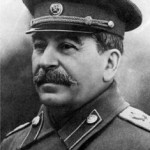 Joseph Stalin (1879-1953, born Josef Dzhugashivili) was a Russian communist revolutionary and, from the late 1920s, the dictatorial leader of the Soviet Union. Stalin’s de facto leadership of world communism shaped the development of the
Joseph Stalin (1879-1953, born Josef Dzhugashivili) was a Russian communist revolutionary and, from the late 1920s, the dictatorial leader of the Soviet Union. Stalin’s de facto leadership of world communism shaped the development of the 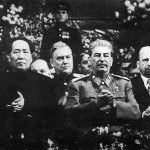
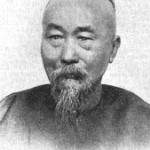 Feng Guifen (1809-74, Wade-Giles: Feng Kuei-fen) was a Chinese scholar, writer and reformer of the mid 19th century. He is best known as the ideological father of the
Feng Guifen (1809-74, Wade-Giles: Feng Kuei-fen) was a Chinese scholar, writer and reformer of the mid 19th century. He is best known as the ideological father of the 